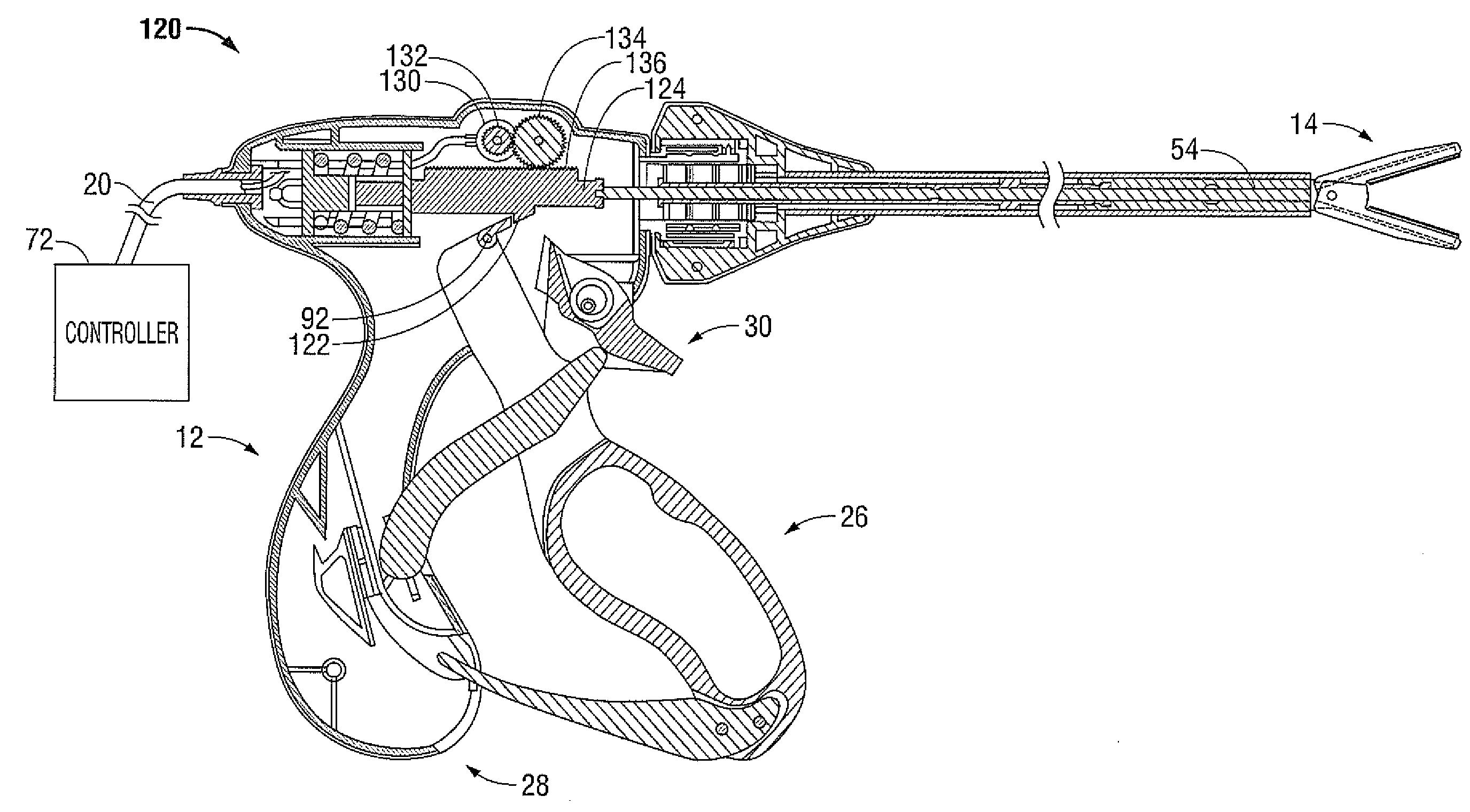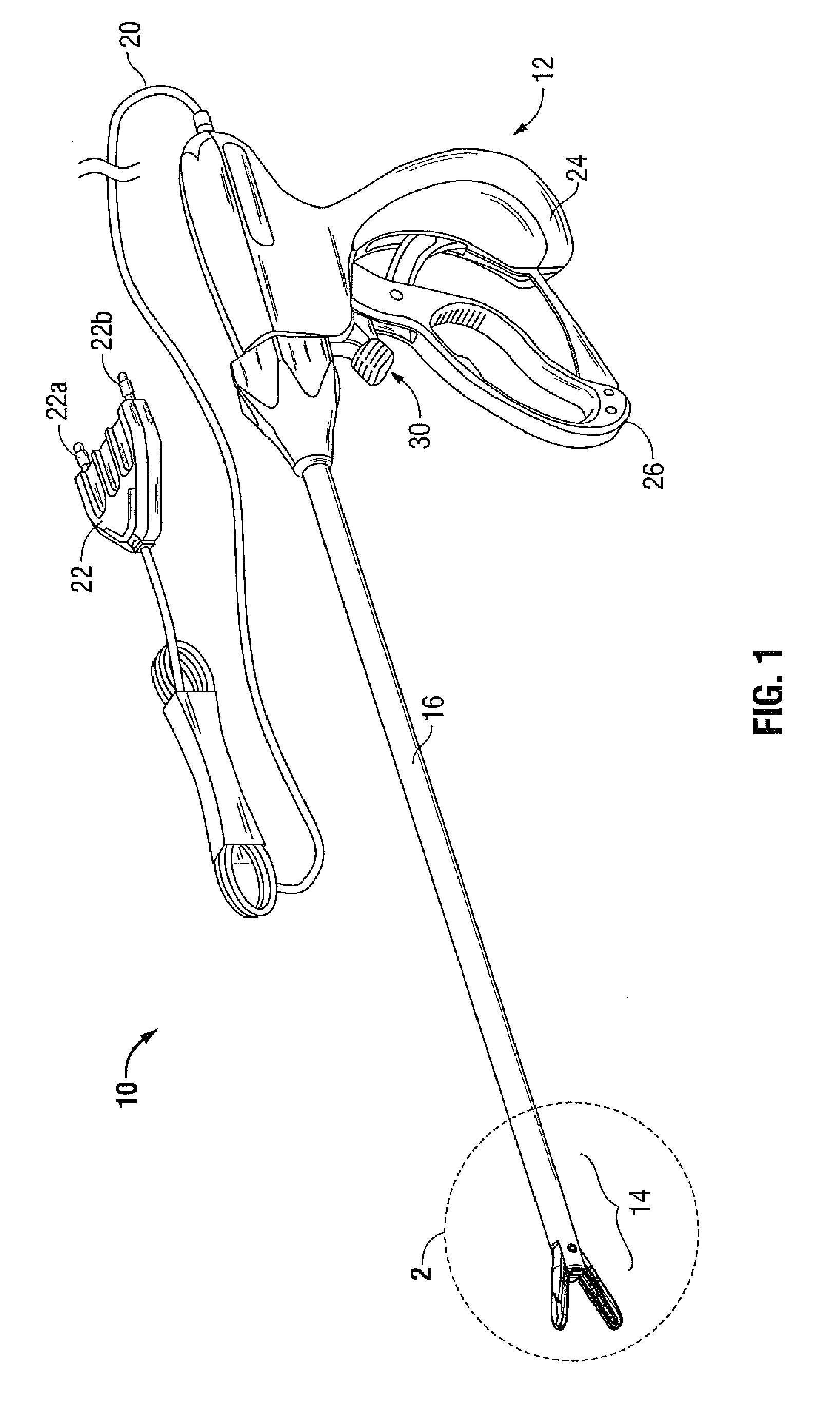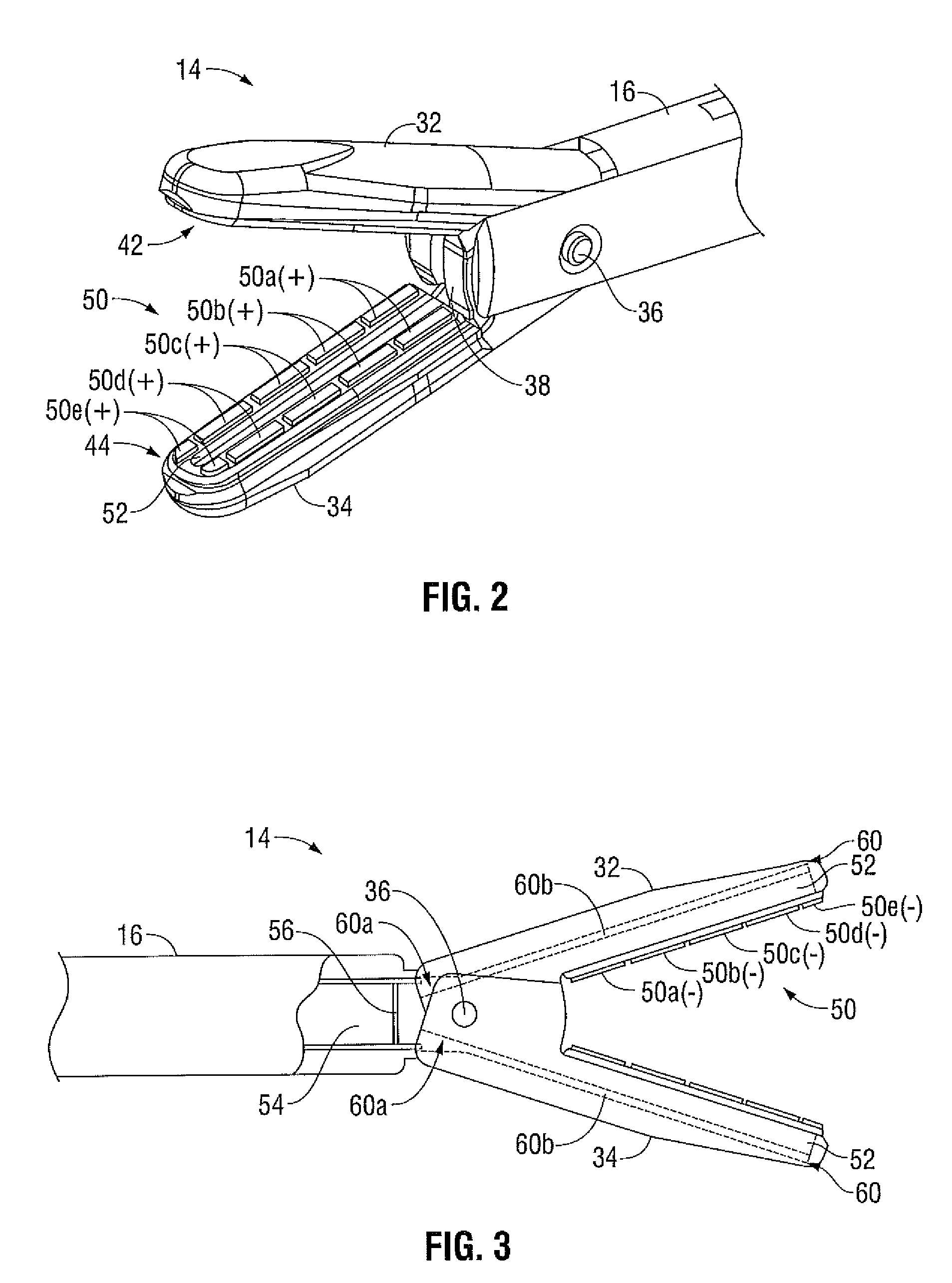Electrosurgical Tissue Sealer and Cutter
a tissue sealer and electrode technology, applied in the field of electrosurgical sealing tissue, can solve the problems of tissue moving before an adequate seal, short circuit, and preventing energy from being transferred through the tissue,
- Summary
- Abstract
- Description
- Claims
- Application Information
AI Technical Summary
Benefits of technology
Problems solved by technology
Method used
Image
Examples
Embodiment Construction
[0032]Referring initially to FIG. 1, an embodiment of an electrosurgical instrument is depicted generally as 10. The instrument 10 includes a handle assembly 12 for remotely controlling an end effector 14 through an elongate shaft 16. Although this configuration is typically associated with instruments for use in laparoscopic or endoscopic surgical procedures, various aspects of the present disclosure may be practiced in connection with traditional open procedures as well as endoluminal procedures.
[0033]Handle assembly 12 is coupled to an electrosurgical cable 20, which may be used to connect the instrument 10 to a source of electrosurgical energy. The cable 20 extends to connector 22 including prong members 22a and 22b, which are dimensioned to mechanically and electrically connect the instrument 10 to an electrosurgical generator (not shown). Each of the two prong members 22a and 22b may be associated with an opposite electrical potential (supplied by the generator) such that bipo...
PUM
 Login to View More
Login to View More Abstract
Description
Claims
Application Information
 Login to View More
Login to View More - R&D
- Intellectual Property
- Life Sciences
- Materials
- Tech Scout
- Unparalleled Data Quality
- Higher Quality Content
- 60% Fewer Hallucinations
Browse by: Latest US Patents, China's latest patents, Technical Efficacy Thesaurus, Application Domain, Technology Topic, Popular Technical Reports.
© 2025 PatSnap. All rights reserved.Legal|Privacy policy|Modern Slavery Act Transparency Statement|Sitemap|About US| Contact US: help@patsnap.com



